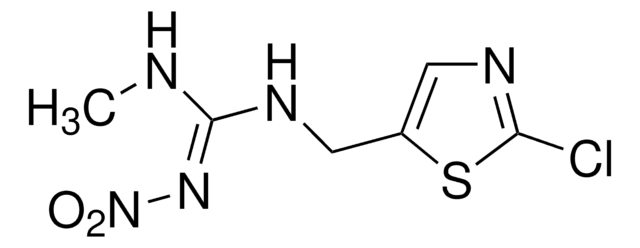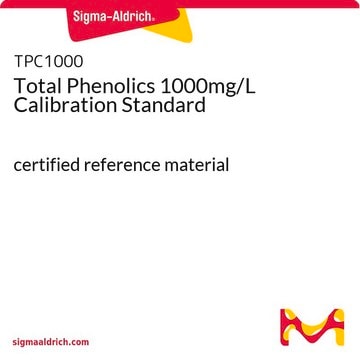40063
Phenol solution
5000 μg/mL in methanol, certified reference material
About This Item
Recommended Products
grade
certified reference material
TraceCERT®
Quality Level
Agency
EPA TO-8
NIOSH 2001
OSHA 32
product line
TraceCERT®
CofA
current certificate can be downloaded
feature
standard type calibration
packaging
ampule of 1 mL
concentration
5000 μg/mL in methanol
technique(s)
HPLC: suitable
gas chromatography (GC): suitable
application(s)
cleaning products
cosmetics
environmental
food and beverages
personal care
format
single component solution
storage temp.
2-8°C
SMILES string
Oc1ccccc1
InChI
1S/C6H6O/c7-6-4-2-1-3-5-6/h1-5,7H
InChI key
ISWSIDIOOBJBQZ-UHFFFAOYSA-N
Gene Information
human ... GABRA1(2554)
Looking for similar products? Visit Product Comparison Guide
General description
Application
Other Notes
Legal Information
Signal Word
Danger
Hazard Statements
Precautionary Statements
Hazard Classifications
Acute Tox. 3 Dermal - Acute Tox. 3 Inhalation - Acute Tox. 3 Oral - Flam. Liq. 2 - STOT SE 1
Target Organs
Eyes,Central nervous system
Storage Class Code
3 - Flammable liquids
WGK
WGK 2
Flash Point(F)
49.5 °F - closed cup
Flash Point(C)
9.7 °C - closed cup
Choose from one of the most recent versions:
Already Own This Product?
Find documentation for the products that you have recently purchased in the Document Library.
Customers Also Viewed
Our team of scientists has experience in all areas of research including Life Science, Material Science, Chemical Synthesis, Chromatography, Analytical and many others.
Contact Technical Service





